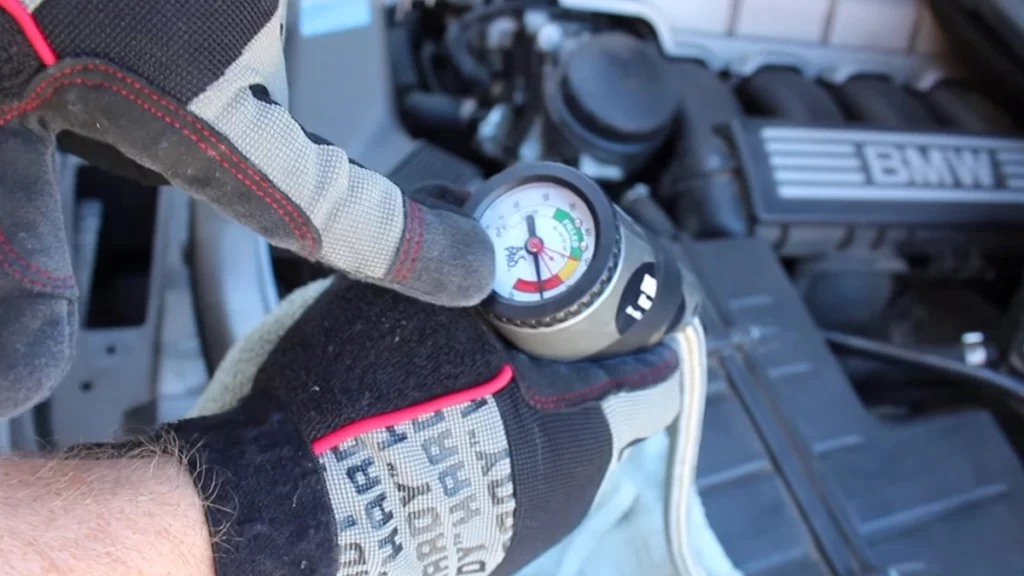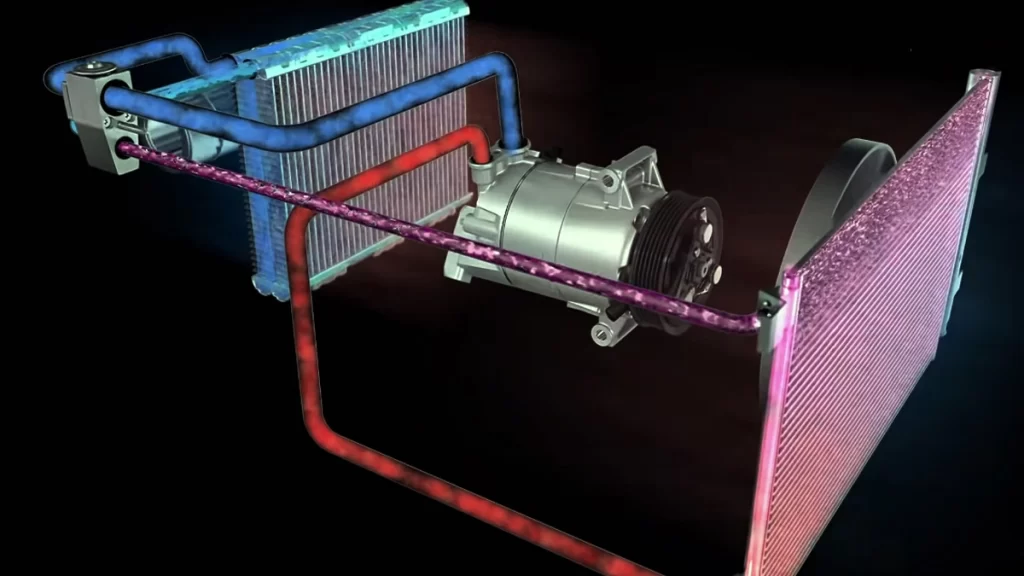Using refrigerants is quite hazardous. If you don’t want it in your system, don’t put it in your mouth or inhale it. As a result, it must be kept under control at all times. When anything goes wrong, this can be an issue. A significant problem arises if you overload your air conditioner. This article discusses how to bleed Freon from car AC.
You can’t push the refrigerant back in once it’s been drained from the system. There is not any way to safely remove the excess refrigerant from a system that has been overcharged. That may sound straightforward, but it’s not as easy as it appears.
What really is an Overcharged AC?
Before learning about the “how to bleed freon from Car AC it is better to look what is an overcharged AC. In other words, if your car’s air conditioner is overcharged, it’s because you overfilled the Freon pipes. It’s common knowledge that adding too much Freon to an air conditioner can make it colder.
Overcharging your air conditioner might cause it to overheat or malfunction improperly. Basically speaking, if an air conditioner is soaked, it begins to blast chilly air.

It is possible to overcharge your compressor if you don’t correctly care. Because of the oil, the compressor will begin to fail. How to remove the refrigerant from a car’s air conditioner is probably something you’ve seen done before. It aids in the process of removing a bloated air conditioner.
In order to provide cooling, the refrigerant in your air conditioner expands and condenses the gases. The coolness you’re seeking is a result of this state shift. You can’t expand the gas form of your refrigerant in an overcharged system since there isn’t enough room. Because of this, it won’t be able to cool your vehicle correctly, which means that you won’t be able to get the proper temperature decrease.
The Procedure for Bleeding an Overcharged Air Conditioner.
The only method to bleed off an overcharged air conditioner is to handle it cautiously. Notably, the refrigerant in your car’s air conditioning system requires constant maintenance. If you’re unsure how to begin experimenting with the harmful chemicals contained in the refrigerant, take your automobile to a local repair.
Before handling refrigerants, you must adhere to specific laws or obtain certification. If performing the procedure is inconvenient, consult a certified mechanic. What is the professional’s role in repairing an overcharged air conditioner?
A vacuum can be created using a particular machine. Then, carefully remove the Freon from the air conditioner. The AC can be appropriately disposed of after removing the Freon and placing it in a closed container.
The most effective way to avoid chemical rules is to have them removed by specialists, as chemical regulations and federal law prohibit AC disposal.
How to bleed Freon from car AC; Symptoms of an Overcharged AC…
No Air Conditioning.
The most obvious symptom that your air conditioner is having a problem with is that it is not performing correctly. If you turn on your air conditioner and no cool air comes out after 5 or 10 minutes, this may be a strong indication that your refrigerant is overloaded. Due to the refrigerant’s inability to expand within the system, it just cycles and does not change state.
Readings of elevated pressure.
When you first refill your air conditioning system, a part of the package required to do so includes an air pressure gauge. This is the most prominent and initial line of defense against overcharging your air conditioner. The pressure gauge should alert you immediately if there is a problem with the system or if you have overfilled it.
Engine Performance Issues.
Under typical conditions, your air conditioner requires a significant amount of power to operate. When your air conditioner is overcharged, this becomes a much larger issue. Because the refrigerant in your system passes through a tiny nozzle, if it is unable to expand into a gas, you are forcing the liquid through this tiny nozzle, increasing the compressor’s workload. An engine-mounted drive belt drives the compressor.
Absence of Air.
In some automobiles, a refrigerant charge problem will cause the air conditioner to stop down completely. This is not true for all models, but for some, when you turn on the air conditioning, nothing happens. This is a safety precaution. If the AC sensors detect an erroneous pressure in the lines, they will automatically shut down the entire air conditioning machine to avoid further harm.
Compressor Noises.
You should immediately become familiar with the sound your air conditioner makes when it is operating normally. Generally, there should be no sound at all, save for the sound of the fan and air blowing into the vehicle’s interior.
When you turn on your AC and hear the compressor laboring or any other mechanical sounds, this is a good indication that something has gone wrong. There is no reason for any mechanical, strained sounds when your air conditioner is running.
Compressor Breakdown.
This is the following stage when your compressor begins to make noises. If the system is overcharged for an extended period, the compressor will attempt to force the high-pressure refrigerant to flow but will be unable to do so.

Eventually, components such as seals and valves will fail, and the compressor will shut down completely. When you turn on your AC at that moment, nothing will happen because it is no longer functional.
What Are the Advantages of Bleeding AC?
I’ve heard a myth about using more Freon to keep a car cooler, which is a common idea. In some cases, warm air is delivered to the vehicle as a bonus! You should avoid the procedure and understand how to bleed an overcharged air conditioning unit of its charge. Let’s have a brief look at some of the advantages it offers.
The compressor and the AC system are faulty because of the extra refrigerant. In addition, the overcharged AC system provides some warm air. Overcharged air conditioners also have the advantage of accumulating more oil than regular use.
It is suggested that you perform a successful AC bleed-off before allowing your AC to suffer harm. Do not allow your air conditioner to be damaged by overheating.
We hope you’ve got a better knowledge of how to bleed Freon from car AC by reading this article. The following FAQs will also help to fix some troubles in your head.
FAQs about how to Bleed Freon from Car AC.
How can you determine whether your car’s air conditioning system is running out of Freon?
- Your air conditioner is blowing warm air. If your air conditioner is blowing very warm or room temperature air, this is one of the most evident signs of low Freon levels.
- Listen For the Air Conditioning Clutch to Engage.
- Visible Leaks of Refrigerant.
- Your air conditioner is blowing warm air.
- Listen For the Air Conditioning Clutch to Engage.
- Visible Leaks of Refrigerant.
How do you release Freon from the car air conditioner?
Locate any AC lines under the hood and cut them in half or disconnect them at one end – the refrigerant will drain away swiftly. Naturally, this will cause the AC system to shut down and damage, and it is unlawful to do so if you do not own the car and is probably illegal even if you do own the vehicle.
I hope you enjoyed the post and gained a better understanding of “How to Bleed Freon from Car AC” If you have any further questions, please leave a comment below and we will respond with more competent solutions. Also, if you have any questions concerning AC resetting, take a look at here.
